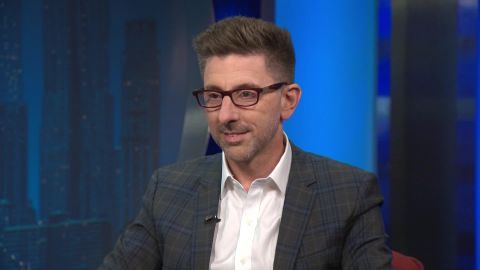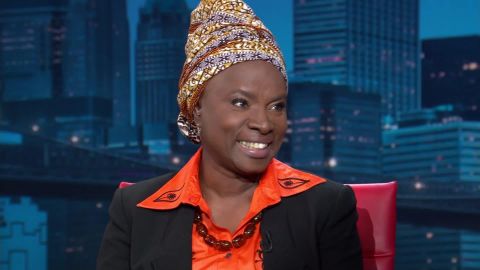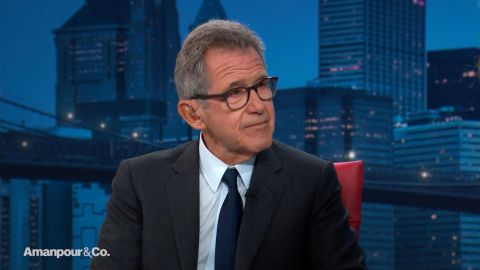Read Transcript EXPAND
CHRISTIANE AMANPOUR: We mentioned that you did come out in 1997 in a speech in Stanford University acknowledging what many industry leaders don’t acknowledge. What made you do it then and are you convinced that BP has enacted the measures that you called for to cut carbon?
JOHN BROWNE, FORMER CEO, BP: So, I did it then because I believe it was the right thing to do and the evidence was pretty clear that the burning of fossil fuels created the problem that we have. And so, we had to figure out how we would either clean up the atmosphere or reduce the use of fossil fuels or both. And that’s where we are today.
AMANPOUR: We’re still there, 20 years later.
BROWNE: We are. We’ve lost a quarter century and I think that’s time which we’ve wasted. Now, the good news is, we have an array of engineering technologies that we could deploy tomorrow to actually solve this problem is. So, the question is, why don’t we? Why don’t we?
AMANPOUR: Which is what I want to ask you because you are one of those people who is being blamed, maybe not you personally now. But nonetheless, you know, these big companies and the fossil fuel industry have a lot of political —
BROWNE: Right.
AMANPOUR: — clout and, as we said, armies of influenced peddlers who make sure that what they want gets done.
BROWNE: So, I think we ought to step back and look at the fact base. Right now, the world uses 85 percent of all the energy in the world comes from fossil fuels, 4 percent from renewables. I’ve been a great proponent of renewables. To change that will take a long time. We will still —
AMANPOUR: How long?
BROWNE: It’s impossible to say. But normally, we’d say it’s going to be decades to change that. It’ll change every year. And we have the technologies to actually capture the carbon being produced and do something with it, either store it or use it for something else, and we have the technology to improve other forms of energy. So, what —
AMANPOUR: But are you saying the technologies are there to make a major dent now but they’re not just being used for that?
BROWNE: Absolutely.
AMANPOUR: They’re not being — it’s not happening?
BROWNE: The reason is that they’re too expensive. That they cost too much. And so, one of the rules of engineering is the more you do something, the cheaper it becomes. So, we have to deploy this. And in order to deploy it, we need incentives or specifically negative ones. If you put carbon in the atmosphere, you should pay a tax. And that —
AMANPOUR: So, rather than subsidize your industries, you need to make your industries and those who pollute pay for that pollution?
BROWNE: Correct. And that tax, I think, wise people would say should not be used for general purposes by government but actually redistribute it to the population so the tax becomes progressive not regressive. Otherwise, you have the Macron problem where you tax regressively and there are riots.
About This Episode EXPAND
John Browne sits down with Christiane Amanpour to explain technology’s potential to solve our biggest problems. Angelique Kidjo joins the program to discuss her new album, “Celia.” Marc Brackett tells Michel Martin about the importance of emotional intelligence and his new book, “Permission to Feel.”
LEARN MORE


